In the following ranking, we take a look at the 15 best affordable colleges in Vermont for bachelor’s degrees. Believe it or not, Vermont is home to more than 4.5 million acres of forest land, which makes it approximately 76 percent forested. Vermont is also the leading producer of maple syrup in the country, making more than two million gallons per year. While Vermont’s residents surely spend time in the woods and enjoy eating pancakes, they also value a high-quality education. Vermont is home to some of the best schools and colleges in the country, including Norwich, Bennington, and Marlboro, that offer innovative programs you would be hard-pressed to find elsewhere in New England or in the U.S., for that matter.
Methodology
We understand how time-consuming it can be to sift through handfuls of bachelor’s degree colleges in Vermont, regardless of whether you have a major in mind or not. Therefore, we decided to provide a sense of direction for students considering a degree in this small yet mighty state. Below, we have identified 15 of the best affordable colleges in Vermont and ranked each school according to three key features most prospective students look for in a program: tuition rates, student-to-faculty ratios, and graduation rates. Before awarding points, however, we first searched for colleges in Vermont offering bachelor’s degrees using the College Navigator tool at the National Center for Education Statistics (NCES). We awarded the schools points based on affordability, class size, and student success.
Average Cost of Attendance
First, we took the average cost of attendance into consideration when awarding points. After all, the cost of a program is usually the first thing future students look at when comparing schools. However, it is important to remember to also look at what each school has to offer in terms of majors, faculty, and extracurriculars rather than simply choosing the cheapest school on the list for the sake of saving money. Below, we have ranked tuition rates based on the cost of an on-campus, in-state student for one full year of study, according to NCES. Although we did not consider out-of-state tuition rates when awarding points, we felt it could be helpful to provide these figures for prospective students.
Points:
Under $7,500: 3 points
$7,500 to $15,000: 2 points
$15,001 and above: 1 point
Student-to-Faculty Ratio
A school’s student-to-faculty ratio provides insight as to the size of its classes as well as its overall learning environment. Although there are cases in which these ratios are small yet there are 30 or more students per class, in most cases, a low student-to-faculty ratio indicates a small class. When comparing schools, think about your academic background, personal priorities, and learning style. While some students prefer to blend into the crowd in a large state university, others thrive in a smaller setting in which they can develop one-on-one relationships with their professors. For this ranking, we awarded the most points to universities and colleges in Vermont that reported low student-to-faculty ratios of 10 or fewer students per faculty member, as reported by NCES.
Points:
10:1 or less: 3 points
11:1 to 15:1: 2 points
Greater than 15:1: 1 point
Graduation Rate
Finally, we analyzed each school’s graduation rate as a measure of student satisfaction and, ultimately, student success. In other words, students who are satisfied with a program and school are more likely to remain at that institution and graduate with their bachelor’s degree. On the other hand, students who are unhappy due to unaffordable tuition rates, inexperienced faculty, a lack of academic support, or some other reason are more likely to drop out and pursue their studies elsewhere. For this reason, we felt that the schools with the highest graduation rates from NCES and therefore the highest levels of student success deserved the highest number of points based on the ranges outlined below.
Points
More than 50 percent: 3 points
Between 30 percent and 50 percent: 2 points
Less than 30 percent: 1 point
Ranking Top 15 Best Affordable Colleges in Vermont
15. University of Vermont
Burlington, Vermont

Points: 5
School Website
The University of Vermont and State Agricultural College, also known simply as the University of Vermont, is a public research university and the state’s land-grant university located in Burlington. Founded in 1791, it is one of eight original “Public Ivy” institutions and the fifth-oldest university in New England as well as one of the oldest institutions of higher learning in the nation. Students at this affordable Vermont university can choose from more than 100 low-cost bachelor’s programs, 53 master’s degrees, 30 accelerated master’s programs, 25 doctoral degrees, and one Doctor of Medicine program. The school is best known for its environmental, agriculture, and business programs as well as its inexpensive degrees in business and pre-professional areas of study. There are plenty of opportunities for hands-on, experiential learning, and the UVM Career Center lists more than 4,000 possible internships in which students can participate. Roughly 92 percent of UVM seniors are involved in some form of research, internship, or other experience-based learning practice. UVM is home to more than 200 clubs and organizations, including 30 service clubs that promote justice, literacy, and/or health, as well as 18 NCAA Division I athletic teams.
In-State Tuition: $18,276
Out-of-State Tuition: $42,516
Student-to-Faculty Ratio: 16:1
Graduation Rate: 76 percent
14. Landmark College
Putney, Vermont

Points: 6
School Website
Located in Putney, Landmark College is a private institution of higher education exclusively for students with diagnosed attention disorders, learning disabilities, or autism. Established in 1985 as a two-year college, Landmark was the post-secondary school to pioneer college-level studies for students with dyslexia. Although it is not an affordable college in Vermont based on cost alone, its 5:1 student-to-faculty ratio makes it an appealing option for those seeking a private education. Students can choose from several high-value associate and bachelor’s degrees as well as online dual-enrollment courses for high school students, a Bridge Experience, and summer programs to help high school and transferring or new college students with learning differences. Students can choose from a top B.S. in Computer Science or a B.A. in four areas: communication and entrepreneurial leadership, studio art, psychology, and liberal studies. Outside of the classroom, the Landmark College Institute for Research and Training is recognized for conducting groundbreaking research on ASD, ADHD, and learning disabilities and shares knowledge with educators across the globe through online courses, professional training, workshops, and webinars.
In-State Tuition: $56,800
Out-of-State Tuition: $56,800
Student-to-Faculty Ratio: 5:1
Graduation Rate: 36 percent
13. Saint Michael’s College
Colchester, Vermont

Points: 6
School Website
Established in 1904 by the Society of Saint Edmund, Saint Michael’s College is a private, liberal arts, Roman Catholic college located in Colchester. Students at this top-value Vermont college study across a variety of subjects, and the faculty mainly focuses on undergraduate education. All courses are taught by professors rather than teaching assistants who are nationally recognized in their fields. With a 13:1 student-to-faculty ratio, classes are small enough that everyone knows each other by name. Students can choose from more than 30 affordable majors and minors, the most popular of which include programs in business, psychology, and biology. Students may also choose to take advantage of several experiential learning opportunities, including participating in an internship, exploring the world through international study, helping the community through service, or collaborating with faculty on research projects that are rare at the undergraduate level. Saint Michael’s hosts 40 clubs and organizations as well as intramural sports and varsity athletics, student plays and musicals, and an on-campus music scene held in the Turtle Underground.
In-State Tuition: $45,375
Out-of-State Tuition: $45,375
Student-to-Faculty Ratio: 13:1
Graduation Rate: 77 percent
12. Champlain College
Burlington, Vermont
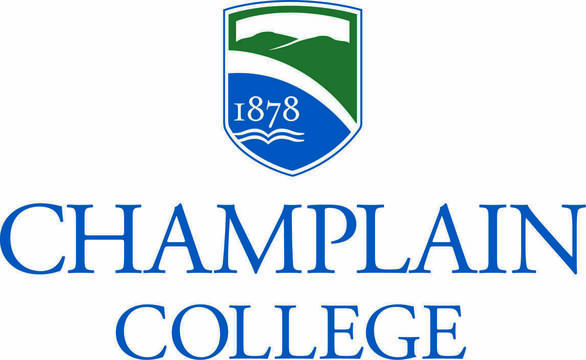
Points: 6
School Website
Champlain College is a private institution of higher education located in Burlington. Established in 1878, Champlain enrolls more than 2,100 students from more than 40 states and more than 15 countries. The school offers best-value undergraduate majors through five academic divisions: Business, Communication and Creative Media, Education and Human Studies, Information Technology and Sciences, and Integrative Professional Studies. Notable economical degree programs of interest include visual communication design, professional writing, game programming, computer and digital forensics, and broadcast media productions. Each major offered by Champlain includes opportunities for internships and hands-on learning. Champlain is also ideal for working professionals as it offers more than 50 career-focused bachelor’s and master’s programs through Champlain College Online. What sets Champlain apart from other low-cost colleges in Vermont is the school’s “Upside-Down Curriculum,” meaning that students begin taking classes in their major in their first year compared to other schools at which students typically complete general education requirements first.
In-State Tuition: $41,010
Out-of-State Tuition: $41,010
Student-to-Faculty Ratio: 15:1
Graduation Rate: 64 percent
11. Norwich University
Northfield, Vermont

Points: 6
School Website
Norwich University – The Military College of Vermont is a private institution of higher learning located in Northfield. Established in 1819 as the American Literary, Scientific, and Military Academy, it is the oldest of six private military colleges in the nation and is recognized as the birthplace of the Reserve Officers’ Training Corps (ROTC). Norwich’s more than 2,400 students can choose to either complete coursework as civilians or join the Corp. Norwich, one of the high-value colleges in Vermont, offers a breadth of fields across four schools: the School of Nursing, the School of Business and Management, the School of Architecture + Art, and the David Crawford School of Engineering. Students can choose from more than 50 high-value undergraduate degrees and four ROTC-focused programs, including popular majors such as business, communications, science, nursing, engineering, and architecture. Unlike other inexpensive colleges in Vermont, the Corps of Cadets is required to follow a military school regimen that consists of physical exercise, rank, uniforms, and officers. Students also participate in service-learning through the Center for Civic Engagement (CCE).
In-State Tuition: $40,014
Out-of-State Tuition: $40,014
Student-to-Faculty Ratio: 13:1
Graduation Rate: 62 percent
10. Sterling College
Craftsbury Common, Vermont

Points: 6
School Website
Located in Craftsbury Common, Sterling College is a low-cost college in Vermont focused on environmental stewardship and one of seven institutions in the Work College Consortium. Established in 1958, Sterling is home to the School of the New American Farmstead which offers unparalleled experiential education opportunities in the natural beauty of the Northeast Kingdom. Whether students are interested in craft beverages, cheesemaking, bio-integrated farm design, entrepreneurship, mushroom cultivation, fermentation, or traditional crafts for a regenerative future, Sterline is known for its specialization in fitness, farming, and food. Students can choose from five affordable programs in sustainable food systems, sustainable agriculture, outdoor education, environmental humanities, and ecology as well as a self-designed major. The school is ranked as the best college in the nation for campuses eating fair trade, humane, and sustainable food. Outside of the classroom, students find themselves working on the on-campus Sterling Farm which integrates 390 acres of forested land, more than 20 acres of pasture, and more than five acres of gardens into a real-life, functioning agricultural laboratory.
In-State Tuition: $38,300
Out-of-State Tuition: $38,300
Student-to-Faculty Ratio: 6:1
Graduation Rate: 44 percent
9. New England Culinary Institute
Montpelier, Vermont

Points: 6
School Website
Located in Montpelier, the New England Culinary Institute (NECI) is a private culinary college founded in 1980 that also operates several restaurants throughout the city. Since the school’s first class of seven students, it has since grown to enroll more than 600 undergraduates. Students can pursue affordable on-campus certificate and associate programs as well as a best-value Bachelor’s in Baking and Pastry Arts and a Bachelor’s in Food and Beverage Business Management. Both Bachelor of Arts programs are also available online as is a third degree in culinary arts. Class sizes are intentionally kept small, with a maximum of 30 students per instructor in traditional classrooms and a maximum of 10 students per instructor in dining room and kitchen classes. There is always something to do at NECI, including pop-up restaurants, guest speakers, field trips, and cooking competitions like the Culinary Classic. Students at this inexpensive school may also participate in professional organizations or student-run clubs as well as sporting events, visits to nearby Boston or Montreal, and wine-tasting events.
In-State Tuition: $22,200
Out-of-State Tuition: $22,200
Student-to-Faculty Ratio: 11:1
Graduation Rate: 85 percent
8. Northern Vermont University-Lyndon
Lyndonville, Vermont

Points: 6
School Website
Nestled in Lyndonville in northeastern Vermont, Northern Vermont University-Lyndon is home to 1,200 students and recognized for its tradition of friendliness, community service, and enthusiasm. NVU-Lyndon offers distinct and low-cost professional programs grounded in a liberal arts core where each degree is infused with career-ready skills. This cheap Vermont college offers several regionally and nationally recognized programs, including degrees in education, tourism, leadership, outdoor education, atmospheric sciences, and a multi-award-winning electronic journalism arts program. Students may also prepare for exciting careers in the school’s visual arts, music business and industry, psychology and human services, graphic design, exercise science, or business programs. Staring the first year, students benefit from research, hands-on projects, site visits, internships, and travel, and NVU-Lyndon faculty and staff go the extra mile to ensure each student is included through academic offerings such as the Academic Resource Center and the First-Year Experience. Most NVU-Lyndon students participate in activities, intramural sports, and clubs.
In-State Tuition: $12,074
Out-of-State Tuition: $25,394
Student-to-Faculty Ratio: 15:1
Graduation Rate: 38 percent
7. Northern Vermont University – Johnson
Johnson, Vermont

Points: 6
School Website
Northern Vermont University – Johnson is one of the most affordable colleges in Vermont. Established in 2018 during the merger of Johnson State College and Lyndon State College, NVU now offers more than 50 low-cost undergraduate and graduate programs in areas of interest such as criminal justice, communications and journalism, business, visual and performing arts, outdoors, and health, exercise, and wellness. NVU prides itself on cross-disciplinary, high-impact learning conducted through student teaching, internships, research, and other forms of experiential learning that help to enhance academic programs and expand each student’s worldview. The school’s Johnson location is located near some of the best skiing spots in the Northeast, including Smuggler’s Notch, Stowe Mountain Resort, and Jay Peak, and there are plenty of activities for trail runners, cyclists, climbers, hikers, and paddlers. NVU is also one of a handful of campuses in the Northeast with its own snowboarding park, and it is home to ponds, a disc golf course, and the campus-owned, 1,000-acre Babcock Nature Preserve.
In-State Tuition: $12,074
Out-of-State Tuition: $25,394
Student-to-Faculty Ratio: 14:1
Graduation Rate: 39 percent
6. Middlebury College
Middlebury, Vermont
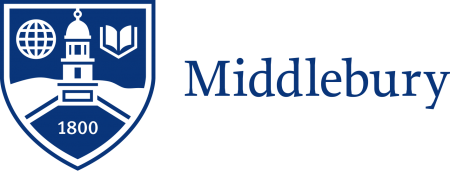
Points: 7
School Website
Middlebury College is a private liberal arts institution and a top-value college in Vermont. Located in Middlebury, the school was founded by Congregationalists in 1800. Middlebury’s curriculum is founded in the liberal arts and designed to provide education across many disciplines and fields as well as in-depth study defined by the major. Students can choose from more than 40 low-cost academic disciplines, but Middlebury is recognized for its strong programs in the environment, writing, international studies, and language. Students have many opportunities for intensive studies that may culminate in artistic production, an independent project, or a senior thesis as they work closely with professors in classrooms, studios, and laboratories to collaborate on creative projects and research. Middlebury is a largely residential campus, and student life revolves around outdoor recreation, a vibrant arts scene, NCAA Division III athletic teams, and an array of student organizations and clubs.
In-State Tuition: $54,450
Out-of-State Tuition: $54,450
Student-to-Faculty Ratio: 8:1
Graduation Rate: 91 percent
5. Bennington College
Bennington, Vermont

Points: 7
School Website
Bennington College is a private liberal arts college that was established in 1932 to explore new approaches in higher education. As a result, this top-value school emphasizes hands-on experiences and self-directed learning in the field. Originally a women’s college, Bennington became coeducational in 1969, and it was the first school to include the performing and visual arts as an equal component in the general liberal arts curriculum. At Bennington, students design their own course of study based on unique fields such as social practices in art, animation and production design, printmaking, painting and drawing, media studies, and sculpture as well as psychology, computer science, architecture, and biology. Bennington differs from other Vermont colleges as it requires all students to complete an internship each year. Due to the school’s rigorous yet innovative academic programs, Bennington is recognized as one of the best and most affordable colleges in Vermont for creative students.
In-State Tuition: $53,860
Out-of-State Tuition: $53,860
Student-to-Faculty Ratio: 10:1
Graduation Rate: 74 percent
4. Marlboro College
Marlboro, Vermont
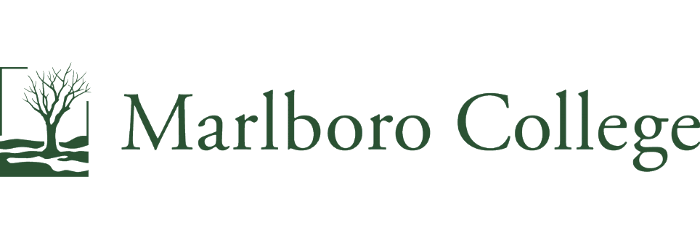
Points: 7
School Website
Established in 1946, Marlboro College is a private liberal arts college located in Marlboro. Marlboro differs from other affordable colleges in Vermont in that it requires students to collaborate with faculty to create an individualized course of study. Although Marlboro does not have a traditional core curriculum, every student must meet the “Clear Writing Requirement” which consists of a portfolio of academic writings and essays and complete a “Plan of Concentration,” an original, in-depth examination of a focused academic subject. Students at this best-value school can choose from 30 degree fields, including environmental studies, computer science, astronomy, the visual arts, development studies, art history, film and video studies, biology, and more. Marlboro’s Center for Experiential Learning & Global Engagement provides students access to many services and experiences beyond the classroom, including career development assistance, study-abroad and exchange opportunities, and grants and scholarships.
In-State Tuition: $40,840
Out-of-State Tuition: $40,840
Student-to-Faculty Ratio: 6:1
Graduation Rate: 63 percent
3. Goddard College
Plainfield, Vermont
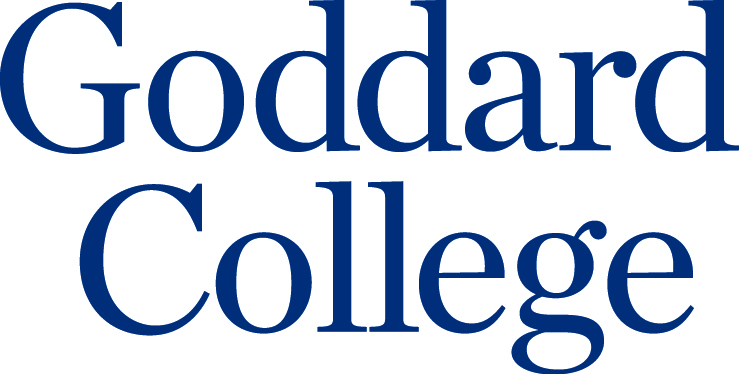
Points: 7
School Website
Goddard College, one of the cheapest colleges in Vermont, is a private, low-residency institution of higher education that was established in 1863. Goddard College was founded as a non-traditional and experimental institution based on John Dewey’s idea that education and experience are intricately linked. Goddard uses an intensive low-residency model, and students may pursue either an individualized Bachelor of Arts or inexpensive bachelor’s degrees in sustainability, psychology, and education. Affordable bachelor’s programs are also available in socially engaged art, health arts and sciences, and creative writing, and students pursuing one of these degrees may complete a concentration in sexuality studies. The campus sits on the grounds of a late 19th-century model farm, the Greatwood Farm and Estate, and consists of gardens designed by Arthur Shurcliff and shingle-style buildings. It has been recognized for its architectural and historical significance with its inclusion on the National Register of Historic Places.
In-State Tuition: $16,586
Out-of-State Tuition: $16,586
Student-to-Faculty Ratio: 7:1
Graduation Rate: 57 percent
2. Vermont Technical College
Randolph Center, Vermont
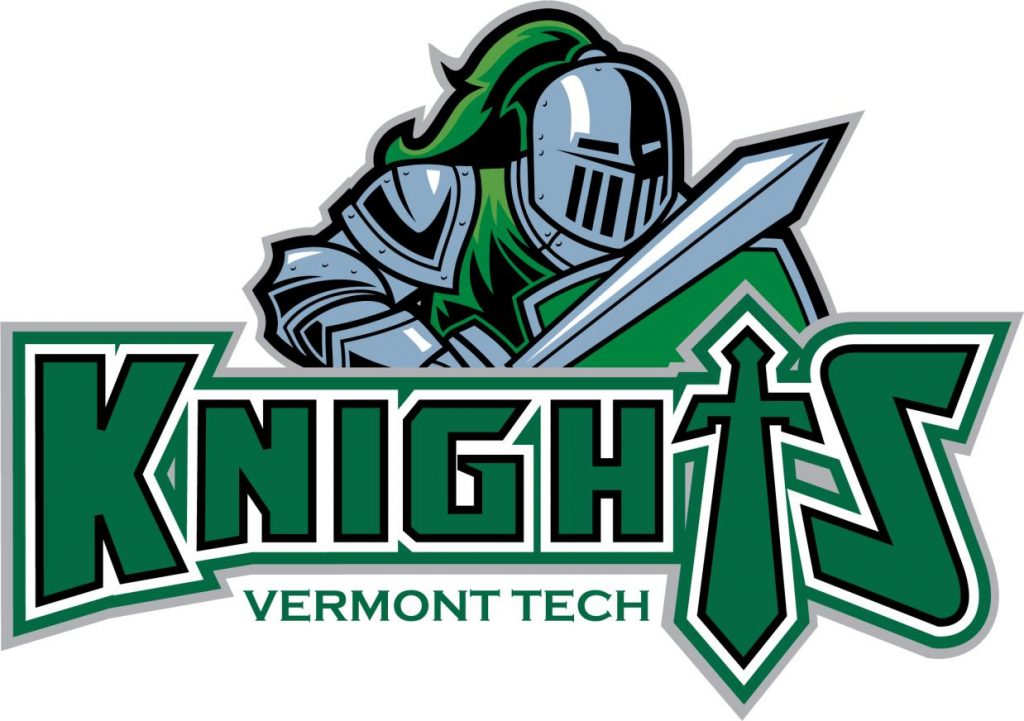
Points: 7
School Website
Vermont Technical College is a public institution that provides career-focused professional and technical education at its main campus in Randolph Center and at its second location in Williston. Vermont Tech is comprised of five schools: Professional Studies and Management, Nursing and Health Professions, Engineering and Computing, General Education, and Agriculture, Plant, and Animal Sciences. Students can choose from more than 45 low-cost degree programs, including certificate and associate programs as well as bachelor’s and master’s degrees that are offered on-campus, online, or in a hybrid format. Academics cover a wide range of fields, including business, dental hygiene, aviation, and agriculture science. Vermont Tech also offers a 1+1+2 year pathway for nursing students to earn their degree, making it one of the nation’s most dynamic nursing programs. Every program features a hands-on, practical component for an applied learning approach that makes Vermont Tech one of the best affordable colleges in Vermont. Students can choose from more than 50 organizations and clubs as well as more than 10 intramural sports to get involved outside of the classroom.
In-State Tuition: $15,108
Out-of-State Tuition: $27,780
Student-to-Faculty Ratio: 10:1
Graduation Rate: 51 percent
1. Castleton University
Castleton, Vermont
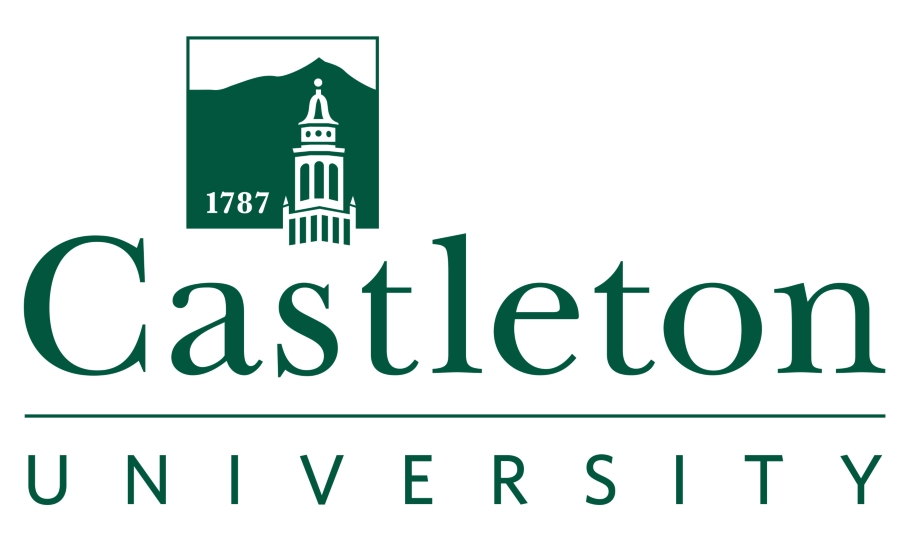
Points: 7
School Website
Castleton University is ranked as the best affordable college in Vermont. Established in 1787 as Castleton State College, the school enrolls more than 1,900 full-time students from 36 countries. Castleton confers more than 75 low-cost programs of study in the liberal arts and sciences as well as in career and professional preparation. With a student-to-faculty ratio of 15:1, class are intentionally kept small to allow students to receive individual attention from faculty. Castleton is known for its sustainable efforts, providing two electric vehicle-charging stations and operating two micro-wind turbines as well as two LEED Gold-certified buildings. The school’s largest department is that of the natural sciences, through which students may pursue majors in environmental science and biology. Outside of the classroom, Castleton is home to more than 600 student-athletes who participate in 28 varsity sports, and students can get involved in more than 60 clubs and organizations.
In-State Tuition: $12,314
Out-of-State Tuition: $28,322
Student-to-Faculty Ratio: 15:1
Graduation Rate: 55 percent
Frequently Asked Questions
What are the Most In-Demand Careers in Vermont for Graduates with a Bachelor’s Degree?
According to the Economic & Labor Marketing Information (LMI) at the Vermont Department of Labor, Vermont reported an unemployment rate of 2.1 percent as of May 2019, significantly less than the national unemployment rate of 3.6 percent as of the same timeframe. This means that approximately 7,300 Vermonters who are actively seeking employment are not currently working. If you have recently earned or are thinking of earning a bachelor’s degree and working in Vermont, it is important to consider your future job look in your prospective major. Below are 10 in-demand careers in Vermont for bachelor’s recipients from 2016 to 2026 in order from greatest average annual growth rate to the lowest growth rate:
- Solar Photovoltaic Installers
- Home Health Aides
- Separating, Filtering, Clarifying, Precipiating, and Still Machine Setters, Operators, and Tenders
- Personal Care Aides
- Court, Municipal, and License Clerks
- Software Developers, Applications
- Diagnostic Medical Sonographers
- Operations Research Analysts
- Dental Laboratory Technicians
- Helpers-Production Workers
What are the Highest-Paying Jobs in Vermont?
Prospective students should also keep in mind the highest-paying jobs in Vermont when narrowing down colleges and looking at majors. Students who know the career paths they wish to take can either solidify or change their decision based on the occupation’s average salary, while those who are still deciding between majors can also use this information to choose the career that will pay off down the road. We consulted the U.S. Bureau of Labor Statistics (BLS) who calculated wage and occupational employment estimates across metropolitan and nonmetropolitan areas in Vermont using data obtained from employers in all industries. According to the BLS, the annual mean wage for the entire state in every job was $50,150 as of May 2018. The top five highest-paying occupations include:
- Surgeons: $272,550
- Anesthesiologists: $257,240
- Obestricians and Gynecologists: $230,380
- Internists, General: $221,310
- Family and General Practitioners: $219,620
However, we felt it would be helpful to also provide average salaries for occupations that do not require any higher education beyond a master’s degree. The following are 10 occupations that an undergraduate can pursue either with a bachelor’s alone or with a bachelor’s and experience, training, certification, and/or licensure. Each occupation listed below boasts a salary of at least six figures.
- Sales Managers: $140,260
- Architectural and Engineering Managers: $136,420
- Chief Executives: $136,410
- Marketing Managers: $123,910
- Computer and Information Systems Managers: $122,960
- Electrical Engineers: $115,460
- Industrial Production Managers: $115,180
- Financial Managers: $113,610
- Advertising and Promotions Managers: $112,670
- Physician Assistants: $106,520
What are the Best Schools in Vermont for Bachelor’s Recipients?
Students looking to earn a degree from a college or university in the Green Mountain State certainly benefit from an incredible value for their money, but that is just the beginning. Despite being one of the smallest states in the nation by area, Vermont is bursting with incredible natural, cultural, and historical attractions. From the glimmering waters of Lake Champlain to the picture-perfect Green Mountains, Vermont truly does have something to offer everyone. Whether you are applying to a university or college in Vermont strictly because your future school is considered a best-value college in Vermont or you simply love the idea of calling this unique New England state “home,” it is important to ensure you are making the best financial decision possible.
Below, we have ranked five of the best affordable colleges in Vermont for bachelor’s recipients based on several factors. We looked at each school’s 20-year net return on investment (ROI), or the amount an on-campus student can expect to earn over a 20-year period if he or she did not take out a financial package as part of his or her tuition. Schools are ranked in order from the highest ROI to the lowest ROI. However, we also provided average salaries reported by graduates from each institution in terms of both early- and mid-career earnings, and these numbers are based on the cost of tuition for a bachelor’s degree alone, according to PayScale.
- 1. Middlebury College
– 20-Year Net ROI: $358,000
– Early Career Pay: $58,400
– Mid-Career Pay: $112,400 - 2. University of Vermont
– 20-Year Net ROI: $343,000
– Early Career Pay: $51,600
– Mid-Career Pay: $99,700 - 3. Vermont Technical College
– 20-Year Net ROI: $325,000
– Early Career Pay: $51,500
– Mid-Career Pay: $84,300 - 4. Norwich University
– 20-Year Net ROI: $292,000
– Early Career Pay: $56,800
– Mid-Career Pay: $94,400 - 5. Saint Michael’s College
– 20-Year Net ROI: $208,000
– Early Career Pay: $51,200
– Mid-Career Pay: $102,200
The forested, rolling hills of lightly-populated Vermont attract droves of leaf-peepers every fall, and its historic, charming small towns often serve as picturesque New England backdrops for the universities that call them home. More than beauty, Vermont also offers several top colleges such as Middlebury College, Vermont Technical College, and the University of Vermont that provide solid ROIs to undergraduates of more than $300,000 each. Students looking to further their education in the state will easily find a school to fit their needs from this ranking of the best affordable colleges in Vermont for bachelor’s degrees.
AS Staff
This concludes our ranking of the top 15 best affordable colleges in Vermont for bachelor’s degrees in 2020.
Other Rankings of Interest:
-
25 Best Affordable Online Business Administration Degree Programs (Master’s)
40 Best Affordable One-Year Accelerated Master’s Degree Programs
50 Most Affordable Colleges with the Best Return
25 Best Affordable Online Mathematics/ Statistics Education Degree Programs (Master’s)
25 Most Affordable Master’s of Statistics Degrees
20 Best Affordable Online Colleges for Computer Networking Degree
10 Most Affordable Law Schools in the United States
15 Best Affordable Animation Degree Programs (Bachelor’s)
40 Best Affordable Pre-Med Degree Programs (Bachelor’s)
15 Best Affordable Film Studies Degree Programs (Bachelor’s)
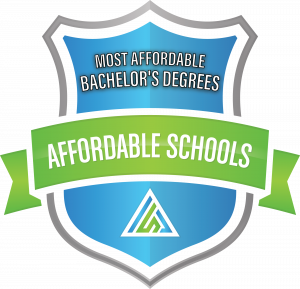
 The Best Colleges
The Best Colleges The Lowest Costs
The Lowest Costs The Highest Returns
The Highest Returns